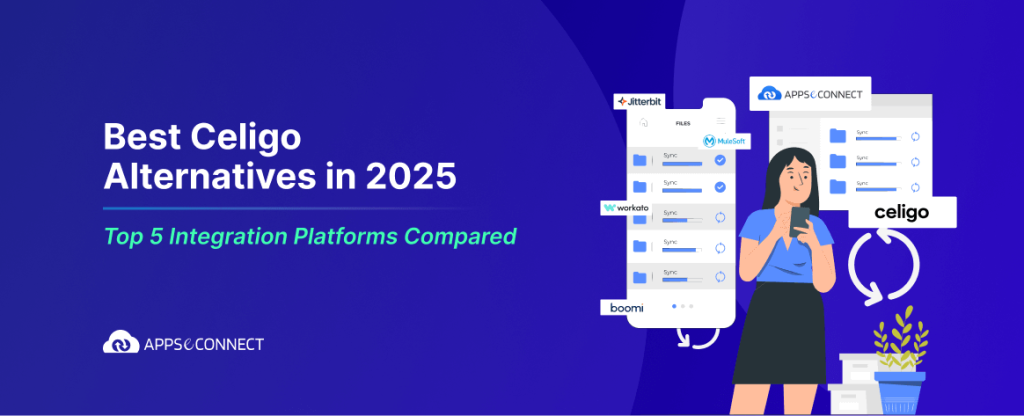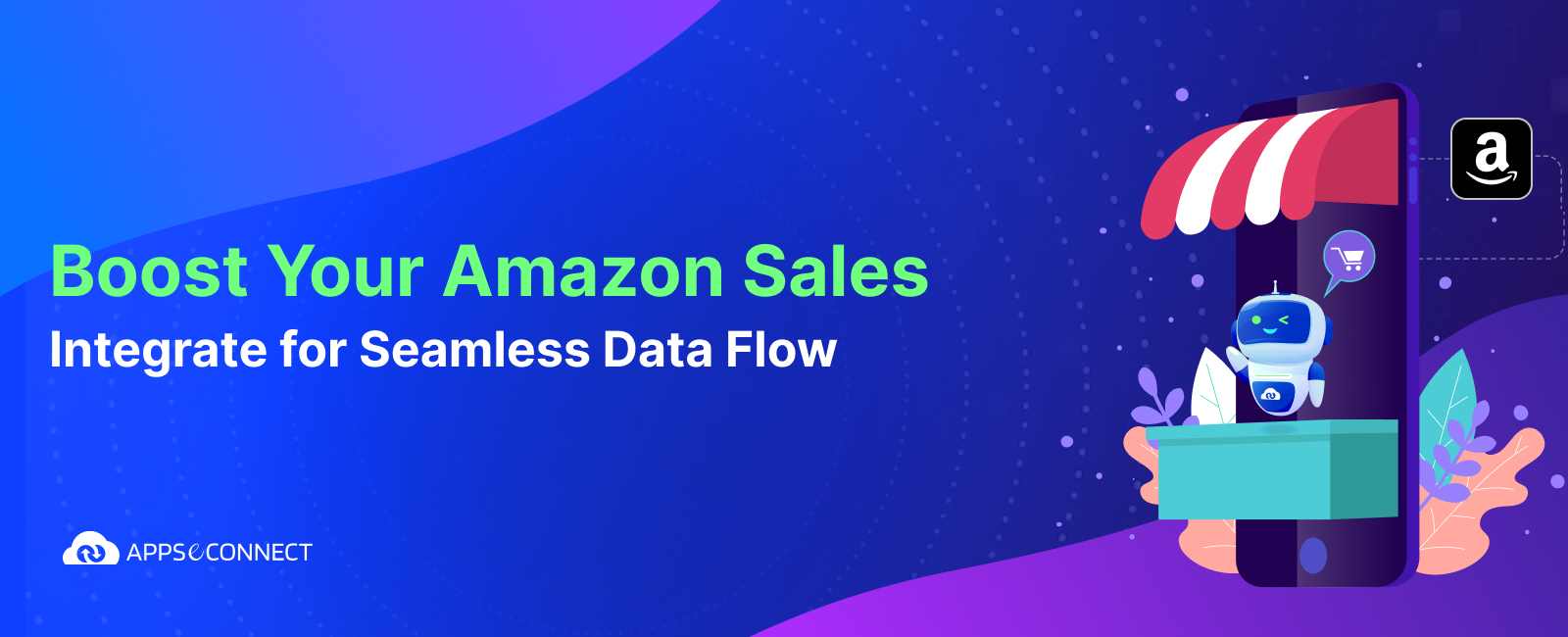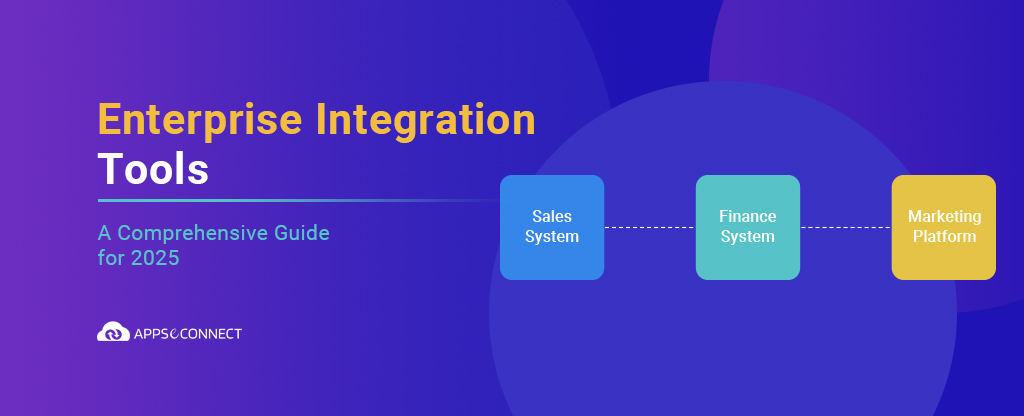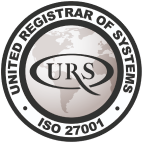Seamless integration between applications is crucial in today’s digital-first business environment. And there are many integration platforms available nowadays that enable businesses to easily connect their digital systems and applications. Among the many iPaaS tools, Celigo has established itself as a popular platform. But even with many excellent features, Celigo is not the perfect fit for everyone.
Many businesses seek Celigo alternatives due to factors such as pricing, scalability, customization limitations, or feature constraints.
If you’re looking for a more flexible, cost-effective, and powerful Celigo competitor, you’ve come to the right place. In this article, we will explore the top 5 alternatives to Celigo in 2025, comparing their features, benefits, and ideal use cases.
Why Look for a Celigo Alternative?
Celigo is a powerful integration platform, but it isn’t the right fit for every business. While it offers automation, pre-built connectors, and API integrations, several limitations drive users to look for alternatives.
Inadequate Error Handling & Troubleshooting
Celigo’s error-handling mechanisms are limited, often providing insufficient details in logs, making issue identification and resolution time-consuming. This leads to operational disruptions when errors occur.
Limited Scalability for Growing Businesses
Celigo works well for smaller businesses, but as integration needs grow, it struggles to accommodate branching data paths and multi-system workflows. Enterprises with high-volume transactions and complex processes find it difficult to scale effectively with Celigo.
Delayed & Limited Support Availability
Celigo users frequently report slow ticket resolution times and delayed responses from customer support. Many businesses find themselves relying on third-party support partners, leading to additional costs and increased downtime during critical operations.
Limited Customization & AI-Driven Automation
Celigo lacks AI-powered automation and dynamic customization options. This means users often have to rely on manual scripting for even simple tasks like field mapping, leading to increased development effort and longer integration setup times.
High & Unpredictable Costs
While Celigo may seem cost-effective at first, pricing can quickly escalate as businesses require more advanced integrations, customization, and scalability. Hidden costs for extra connectors, API limits, and troubleshooting support make budgeting unpredictable.
What to Look for in a Celigo Competitor?
If you’re considering switching from Celigo, here are some key factors to evaluate in a Celigo alternative:
- Advanced error handling – Comprehensive logs & real-time troubleshooting
- Scalability – Support for multi-system workflows & enterprise-grade automation
- Reliable customer support – 24/7 availability & dedicated issue resolution
- Customization & automation – AI-powered optimization & flexible workflows
- Cost-effectiveness – Transparent pricing with no hidden fees
By keeping these factors in mind, you can choose an integration platform that truly meets your business needs—one that’s powerful, flexible, and more affordable than Celigo. So let’s explore the top Celigo alternatives which excel at these features.
Best Celigo Competitor & Alternatives for Seamless Business Integration
If you’re looking for a more powerful, scalable, and cost-effective alternative to Celigo, here are the top 5 integration platforms you should consider.
APPSeCONNECT – The #1 Celigo Alternative
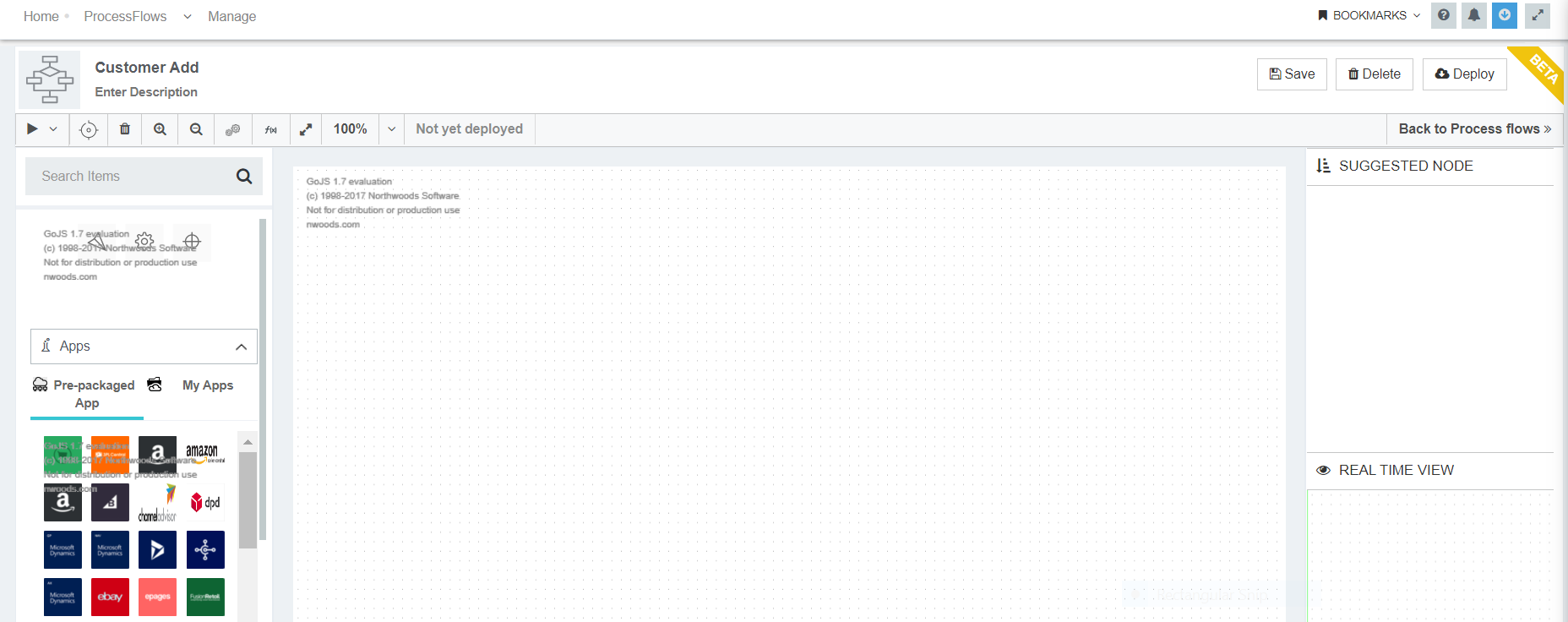
APPSeCONNECT is a leading iPaaS solution that provides seamless, real-time connectivity between ERP, CRM, eCommerce, and other essential business applications. Here are the key features which makes it the best Celigo alternative:
- Enterprise-Grade Error Handling: Advanced logs, Sync Info, and Auto-Healing for real-time troubleshooting.
- Scalability for Complex Workflows: Supports multi-system integration with logic-driven branching, merging, and AI-powered automation.
- AI-Driven Customization: AI-powered workflow optimization, drag-and-drop process automation, and pre-built connectors for 100+ business applications.
- 24/7 Dedicated Customer Support: Unlike Celigo, no third-party dependency—ensuring fast resolution when needed.
- Cost-Effective Pricing: Transparent pricing without hidden API or connector fees—scaling affordably as your business grows.
- Hybrid & Cloud Deployment: Flexibility to run integrations in the cloud or on-premises, based on business needs.
There are additional features that establish APPSeCONNECT as the leading enterprise integration platform.
- AI-powered automation for workflow efficiency
- Pre-built connectors for SAP, Salesforce, Shopify, NetSuite, and more
- Hybrid integration (cloud + on-premises support)
- Real-time data sync with error recovery and retry logic
- Bank-level security & compliance
Best for: Businesses seeking an AI-powered, highly customizable, and scalable integration platform with robust automation, enterprise-grade security, and 24/7 support.
Compare Celigo and APPSeCONNECT in detail – Celigo vs APPSeCONNECT
MuleSoft – Enterprise-Grade API Integration
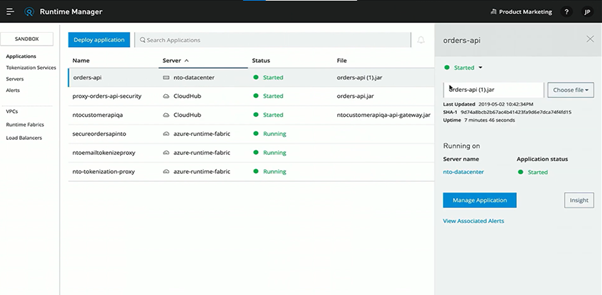
MuleSoft Anypoint Platform is a powerful iPaaS solution designed for complex enterprise integrations. It allows businesses to connect applications, data, and devices using API-driven workflows.
Key Features:
- API-first architecture: Helps businesses build, deploy, and manage integrations at scale.
- Enterprise-grade security & governance: Ensures compliance with strict IT security policies.
- Multi-cloud & hybrid support: Works across on-premise, cloud, and hybrid infrastructures.
Why Consider MuleSoft Over Celigo?
MuleSoft is a great choice for large-scale enterprise integrations that require API-led connectivity. It offers robust security, governance, and compliance tools, making it particularly suited for industries with strict regulatory requirements such as finance and healthcare.
However, its complexity and high cost can be a barrier for small and mid-sized businesses, especially those without a dedicated IT team to manage API integrations.
Best for: Large enterprises needing API-led integration with high scalability and governance features.
Workato – AI-Driven Automation for Business & IT Teams
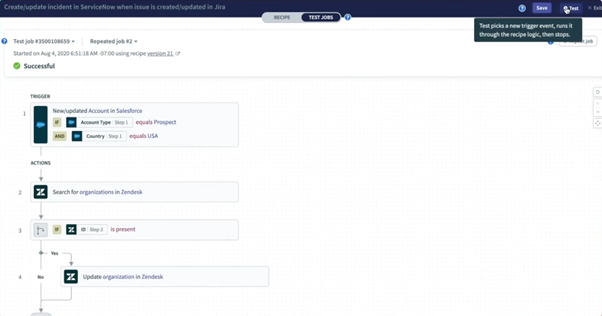
Workato is a user-friendly automation platform that allows both business users and IT teams to build integrations without deep coding knowledge.
Key Features:
- No-code automation: Drag-and-drop interface for building workflows.
- AI-powered suggestions: Helps users create optimized automation.
- Pre-built recipes: Thousands of automation templates for common use cases.
Why Consider Workato Over Celigo?
Workato is a strong alternative to Celigo for businesses that want a no-code approach to automation, allowing non-technical users to create powerful workflows with minimal effort. Its AI-driven automation capabilities make it particularly useful for process optimization and cross-department collaboration.
However, Workato’s pricing structure is usage-based, which means costs can rise quickly as businesses expand their automation needs.
Best for: Businesses needing no-code/low-code automation with AI-powered process automation.
Boomi – Cloud-Native Integration Platform
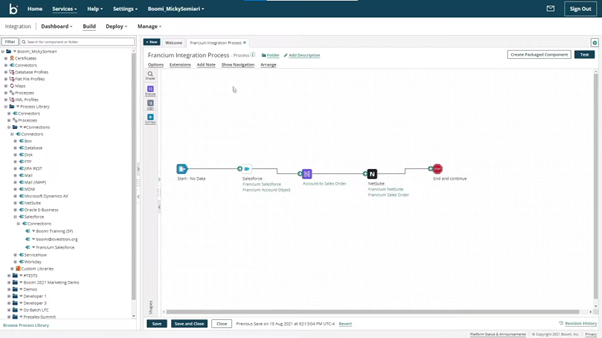
Boomi offers a robust cloud-native iPaaS that enables businesses to integrate applications, data, and workflows seamlessly.
Key Features:
- Cloud-first design: Built for easy cloud-based integrations.
- High-speed deployment: Faster implementation compared to Celigo.
- Scalable for growing businesses: Supports multi-cloud and hybrid environments.
Why Consider Boomi Over Celigo?
Boomi stands out for its cloud-native architecture, making it an excellent choice for businesses focused on digital transformation and cloud-based infrastructure. It is particularly fast to deploy, allowing companies to implement integrations quickly without heavy IT involvement.
However, as businesses grow, Boomi’s licensing costs can become a concern, especially for organizations that require high-volume data transfers.
Best for: Businesses needing cloud-first integration with fast deployment and managed services.
Jitterbit – Flexible Integration & API Management
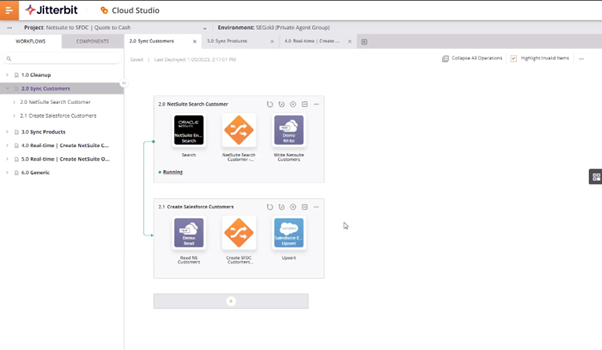
Jitterbit is an API-driven integration platform that provides robust automation features and pre-built connectors for various applications.
Key Features:
- Pre-built templates & connectors: Speeds up integration setup.
- API transformation & management: Helps businesses optimize API workflows.
- Customizable automation: Supports scripting & custom logic development.
Why Consider Jitterbit Over Celigo?
Jitterbit is ideal for companies that require more flexibility in their integrations, particularly those needing extensive API customization. It allows businesses to transform and manage data efficiently, making it a preferred choice for IT-heavy environments.
However, Jitterbit’s complexity and the need for advanced scripting knowledge can make it challenging for businesses without a dedicated technical team.
Best for: Businesses needing custom API integrations with a focus on enterprise workflow automation.
Final Thoughts on Celigo Alternatives
Choosing the right integration platform is essential for businesses looking to streamline their operations, connect critical applications, and automate workflows efficiently.
After analyzing the best Celigo alternatives, here’s a quick breakdown to help you decide which platform best fits your business requirements:
- If you need an AI-powered, highly customizable, and scalable integration platform, APPSeCONNECT is the #1 choice. It offers enterprise-grade automation, real-time data synchronization, and robust error handling, all with cost-effective pricing and 24/7 dedicated support.
- For API-led integrations, MuleSoft is a solid alternative, offering API management and security tools, though it comes with a high learning curve and cost.
- For businesses looking for a no-code/low-code approach to automation, Workato is a suitable choice, providing AI-driven workflow optimization and pre-built automation recipes—but keep in mind its usage-based pricing can increase costs over time.
- If your business is cloud-first and prioritizes fast deployment, Boomi is a great option with cloud-native architecture and multi-cloud support, though scaling costs can become a concern.
- For companies needing flexible API integration and workflow automation, Jitterbit offers custom scripting and powerful API management, making it ideal for IT-heavy environments, but it requires technical expertise for setup and maintenance.
No matter which alternative you choose, it’s important to evaluate your business’s integration needs, scalability requirements, and budget before deciding.
Ready to Experience the Best Celigo Alternative?
APPSeCONNECT stands out as the most flexible, cost-effective, and scalable iPaaS solution, offering seamless business integrations, AI-powered automation, and dedicated 24/7 customer support.
Sign up for a free trial or book a demo today to see how APPSeCONNECT can transform your business!


